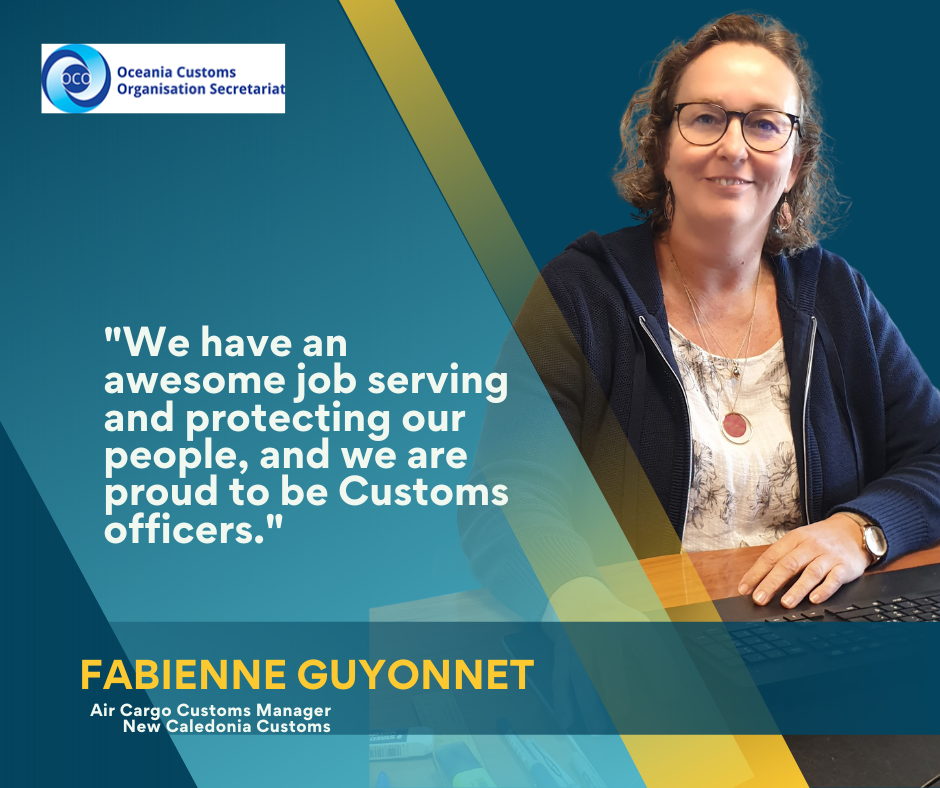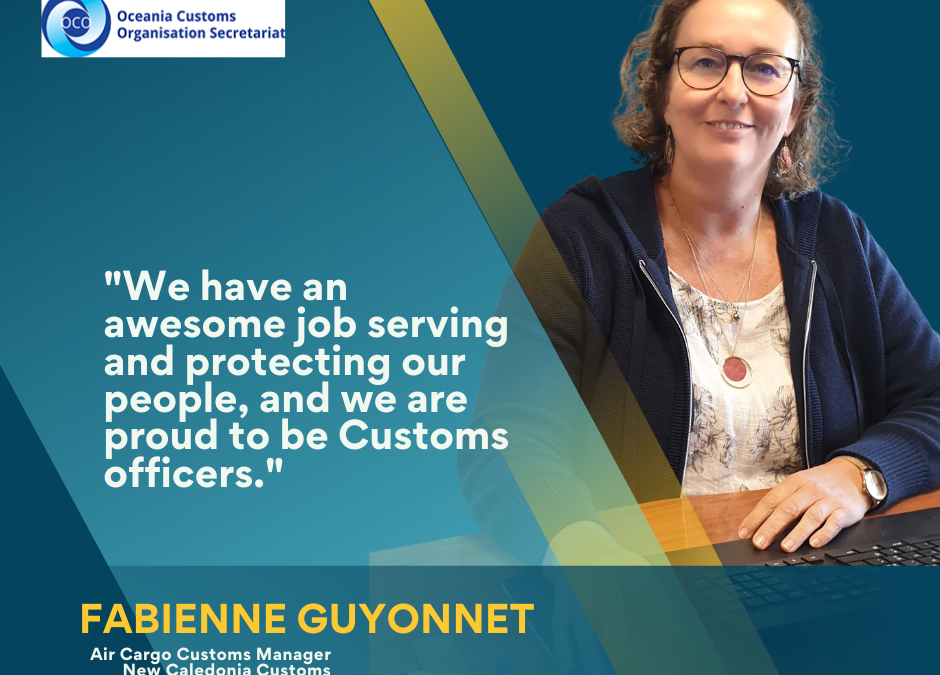
Suva, Fiji, August 23, 2022:
In June this year, New Caledonia Customs appointed Fabienne Guyonnet to manage all air cargo, which increased significantly during the COVID-19 pandemic. In addition, Ms Guyonnet also manages the development and implementation of the Automated Systems for Customs Data World (AsycudaWorld).
- Can you describe your daily work?
Since my appointment, I had devoted my time meeting with team members to understand their expectations of me, the difficulties they encounter and their views on how we could improve our internal processes. The feedback from the team was very helpful and is included on our contribution on technical and regulatory improvements to our headquarters.
I also took time to meet our partners in the airport area, both the public sector (border police, biosecurity, health service, etc.) and the private sector (Chamber of Commerce and Industry, Customs brokers, air carriers and handlers, etc.).
Indeed, the development of a solid network and a good knowledge of each person’s role and expectations is essential to me to better control the supply chain and the challenges of Customs control.
- The pandemic caused an increase in air freight, how challenging was that for your organization?
The pandemic has impacted the organisation, and, during this difficult period, the team needed to stay mobilized to ensure the flow of goods. We faced several challenges, in particular:
– the “explosion” of e-commerce, characterised by a significant increase in the number of small, imported packages and therefore the number of Customs declarations filed with the office managing air freight increased (+19.5% in 2021 compared to 2019).
– the need to facilitate the import of goods useful for crisis management while maintaining a high level of control and guaranteeing compliance with standards for these sensitive medical products.
– considering the logistical difficulties of operators due to the drastic reduction in flights.
– optimisation of human resources management to guarantee staff safety while maintaining a sufficient level of control to thwart attempts of fraud.
- What are some of the other challenges you face today?
The crisis that we have just experienced at the global level poses challenges for Customs in our three areas of action, which are the fight against fraud, support for the economic world and revenue collection:
On our fight against fraud, the re-opening of borders is again leading to significant movements of people internationally. We need to remain attentive on the consequences of these re-openings on the flow of goods and traffickers.
In terms of support for the economic world, the health crisis has had a strong impact on the financial health and economic development of our companies. Customs has a fundamental role to play in helping them to resolve their current difficulties but above all to be more resilient in the future.
On taxes, we mustn’t forget the very severe impact that this crisis has had on the budgetary resources of public authorities (less income and more expenditure). It is therefore up to Customs to secure the collection of duties and taxes to guarantee fair collection of the revenues expected by the public authorities.
- How do you overcome them?
To overcome these challenges, we ensure our methods of control are implemented, including risk assessment at different levels of the logistics chain (before and after Customs clearance), we develop collaboration with other border agencies to improve our knowledge of air freight traffic with our stakeholders.
- Have you attended any training with OCO and how important has this been for your daily work?
Yes. This year, I attended the inaugural session of the Pacific Women’s Professional Development Program (PWPDP) which is a partnership between the Oceania Customs Organization (OCO), the Australian Border Force and RMIT Transnational Security Center.
This virtual course came at the perfect time in my leadership journey and gave me lots of very useful tips that I now use in my daily work. Part of the program focused on good managerial practices and personal development. I loved the training method, including readings, videos and zoom exchanges. In my new role, I am currently working to build my own network and I participate as often as possible in the exchange sessions organised with other women in Customs, those who were part of the PWPDP, and sometimes with colleagues in Asia or Africa for example. We got so much advice during this training. The two best ones in my view are to “read, read and read” and to “keep learning all the time “. For my part, I put this advice into practice by reading as many publications related to Customs issues as much as possible
ENDS
For more information, queries, or interview requests, please email MediaOCO@ocosec.org
About OCO: OCO is a grouping of 23 customs administrations in the Pacific region. It facilitates regional cooperation, information sharing and capacity building of its members with the overall target of supporting economic growth and improved border security in the Pacific.
